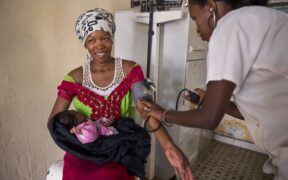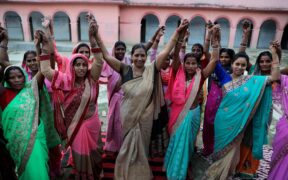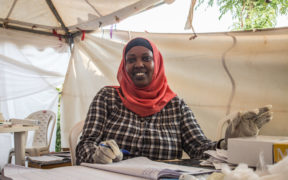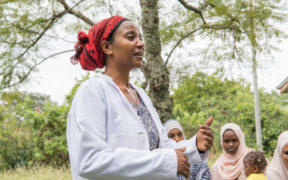Tag:
universal health coverage (UHC)

Since May 2021, MOMENTUM Nepal has worked with 105 private sector service delivery points (73 pharmacies and 32 polyclinic/clinics/hospitals) in seven municipalities across two provinces (Karnali and Madhesh) to expand their access to high quality, person-centered FP services, especially for adolescents (15-19 years), and young adults (20-29 years).

A brief introduction of the new endeavors underway with USAID's reproductive health project, PROPEL Adapt.

En Ecuador, si bien ha habido importantes avances políticos que reconocen a las personas con discapacidad (PCD) como titulares de derechos, persisten muchas situaciones de exclusión debido a las condiciones de pobreza o pobreza extrema que afectan a muchas PCD, y el acceso real a la salud de las PCD sigue sin lograrse.

Adapted from the article “How Enhanced Engagement with The Private Sector Can Expand Access to Family Planning and Bring the World Closer to Universal Health Coverage” developed by Adam Lewis and FP2030.

We are pleased to introduce our new blog series, FP in UHC, developed and curated by FP2030, Knowledge SUCCESS, PAI, and MSH. The blog series will provide valuable insights into how family planning (FP) contributes to the achievement of Universal Health Coverage (UHC), with perspectives from leading organizations in the field. This is the second post in our series, focusing on engaging the private sector to ensure that FP is included in UHC.

Adapted from the soon to be published article “How Enhanced Engagement with The Private Sector Can Expand Access to Family Planning and Bring the World Closer to Universal Health Coverage” developed by Adam Lewis and FP2030.

A version of this blog post originally appeared on FP2030’s website. Knowledge SUCCESS partnered with FP2030, Management Sciences for Health, and PAI on a related policy paper outlining the intersectionality between family planning (FP) and universal health coverage (UHC). The policy paper reflects learnings from a 3-part dialogue series on FP and UHC, hosted by Knowledge SUCCESS, FP2030, MSH and PAI.

Knowledge SUCCESS, FP2030, Population Action International (PAI), and Management Sciences for Health (MSH) have partnered on a three-part collaborative dialogue series on universal health coverage (UHC) and family planning. Our third conversation focused on achieving UHC through people-centered reforms.

Our second conversation in this 3-part collaborative webinar series focused on financing schemes and innovations for UHC and the integration of family planning.

Knowledge SUCCESS, FP2030, Population Action International (PAI), and Management Sciences for Health (MSH) have partnered on a three-part collaborative dialogue series on universal health coverage (UHC) and family planning. The first 90-minute dialogue explored high-level UHC commitments and specific UHC policies in several different contexts.













